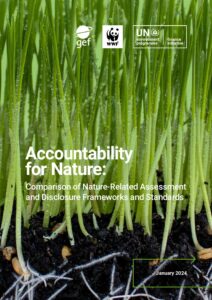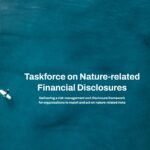
A new report, co-authored by the United Nations Environment Programme World Conservation Monitoring Centre (UNEP-WCMC) and the United Nations Environment Programme Finance Initiative (UNEP FI), provides an overview of the key methodological and conceptual trends among the private sector assessment and disclosure approaches on nature-related issues. It provides comparative research on seven leading standards, frameworks and systems for assessment and disclosure on nature-related issues, including:
- CDP disclosure system
- European Sustainability Reporting Standards (ESRS)
- Global Reporting Initiative (GRI) Standards
- International Sustainability Standards Board (ISSB) Standards
- Natural Capital Protocol
- Science Based Targets Network (SBTN) target setting guidance
- Taskforce on Nature-related Financial Disclosures (TNFD) framework
These approaches vary in their specific purpose, which includes disclosure, assessment and/or target setting, and so does their content. This report aims to highlight the common trends while noting divergences that relate to the differing purposes.
The landscape of private sector assessment and disclosure on nature will continue to evolve. As all approaches have plans for future updates, specific recommendations or requirements of the different approaches may change. The transition from voluntary to mandatory disclosure requirements is likely to continue and be observed in an increasing number of countries. UNEP FI and UNEP-WCMC intend to continue developing future research comparing the reviewed approaches to understand further the progress on the trends highlighted in this report and the challenges in strengthening the approaches and their alignment.



